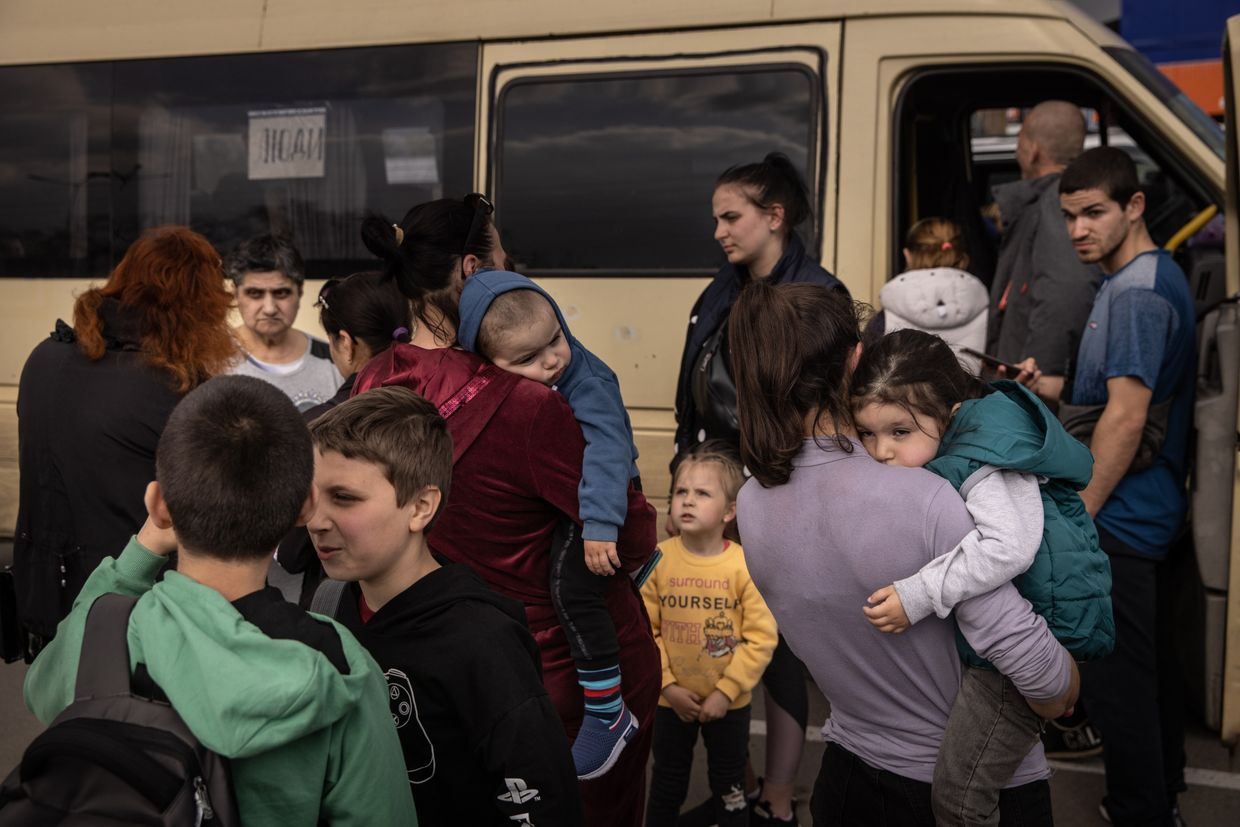'No NATO, US recognizing annexation of Crimea' — Washington awaits Kyiv's response to ceasefire pitch, WSJ reports

Ukraine is under pressure to respond this week to a U.S. proposal on concluding the war with Russia, which includes the possibility of Washington recognizing Moscow’s 2014 annexation of Crimea and barring Ukraine from NATO, the Wall Street Journal reported on April 20, citing an obtained document.
The proposals, outlined by senior Trump administration officials in a confidential meeting with Ukrainian and European counterparts in Paris on April 17, were confirmed by Western officials to the WSJ.
The news comes as Washington signaled readiness to drop ceasefire efforts within the coming days unless progress is achieved.
Ukraine's feedback is expected at a follow-up meeting in London later this week. If there is alignment between Kyiv, Washington, and European allies, the proposals could be formally introduced to Moscow.
Among the most controversial elements is the suggestion that the U.S. could formally recognize Russia’s illegal annexation of Crimea. Additionally, Ukrainian accession to NATO would be ruled out under the current proposal.
"NATO isn’t on the table," said U.S. Special Envoy to Ukraine Keith Kellogg in an interview with Fox News on April 20.
Ukraine has previously said it would not recognize occupied territories as Russian as part of any peace deal. The move to recognize Crimea under Russian rule also contradicts a decade-long bipartisan consensus in Washington and international law.
In 2018, then-Secretary of State Mike Pompeo reaffirmed U.S. opposition to the annexation, calling it a threat to "a bedrock international principle shared by democratic states: that no country can change the borders of another by force." The U.S. Congress has also passed legislation opposing any recognition of Russia’s claim over Crimea.

Ukraine has also previously rejected restrictions on joining international alliances and organizations—namely, NATO and the EU—as part of a potential peace deal. NATO Secretary-General Mark Rutte recently said that Kyiv's path toward membership remains "irreversible" but added that the matter would not be part of an eventual peace settlement.
The Ukrainian delegation in Paris included Andriy Yermak, chief of staff to President Volodymyr Zelensky, along with Foreign Minister Andrii Sybiha and Defense Minister Rustem Umerov. According to the WSJ, the Trump team, including Kellogg and special envoy Steve Witkoff, should be present at the London meeting as well.
Witkoff is then expected to travel to Moscow, the WSJ reported. Officially the special envoy for the Middle East, Witkoff has led Trump's diplomatic outreach to Russia, meeting Russian President Vladimir Putin three times, most recently on April 11.
In a comment to the WSJ, a senior State Department official emphasized that the ideas were presented as "potential options" rather than ultimatums, though Kyiv is expected to offer a firm stance quickly.
Another proposal would involve establishing a neutral zone around the Russian-occupied Zaporizhzhia Nuclear Power Plant, the largest nuclear power station in Europe, potentially leaving it under American control.
In an earlier call with Zelensky, U.S. President Donald Trump reportedly suggested the idea of the U.S. acquiring Ukrainian energy assets, which he said could be the "best protection for that infrastructure."
While the U.S. proposals stop short of granting Russia formal legal recognition of its claimed annexation of four partially occupied eastern Ukrainian regions, they also do not call for the withdrawal of Russian troops from those areas.
Since 2022, Moscow has illegally declared Ukraine's Donetsk, Luhansk, Zaporizhzhia, and Kherson oblasts as part of the Russian Federation, incorporating them into its Constitution and demanding the complete retreat of Ukrainian forces from their administrative borders.
The Trump administration has not ruled out bilateral military assistance to Ukraine or support for European nations contributing forces to a "reassurance force," a potential buffer against future aggression. However, no specific security guarantees have yet been offered as part of the proposed deal.
This goes in contrast with Russian demands for a full halt of military support to Ukraine, which the Kremlin voiced as a precondition to a 30-day ceasefire suggested by the Trump administration over a month ago. While Ukraine has accepted the offer if Russia reciprocates, Moscow has not yet supported the idea. In recent weeks, Russia has intensified attacks on civilians in Ukrainian cities.
During talks with the U.S. representatives in Saudi Arabia, Kremlin officials were reportedly seeking relief from U.S. sanctions and the restoration of trade ties, efforts being led by Putin’s envoy Kirill Dmitriev.
Zelensky’s office has not publicly commented on the details of the U.S. proposal. On April 19, Ukrainian officials reaffirmed openness to a mutual 30-day ceasefire, though they accused Moscow of violating a temporary truce over the Easter holiday on April 20.












